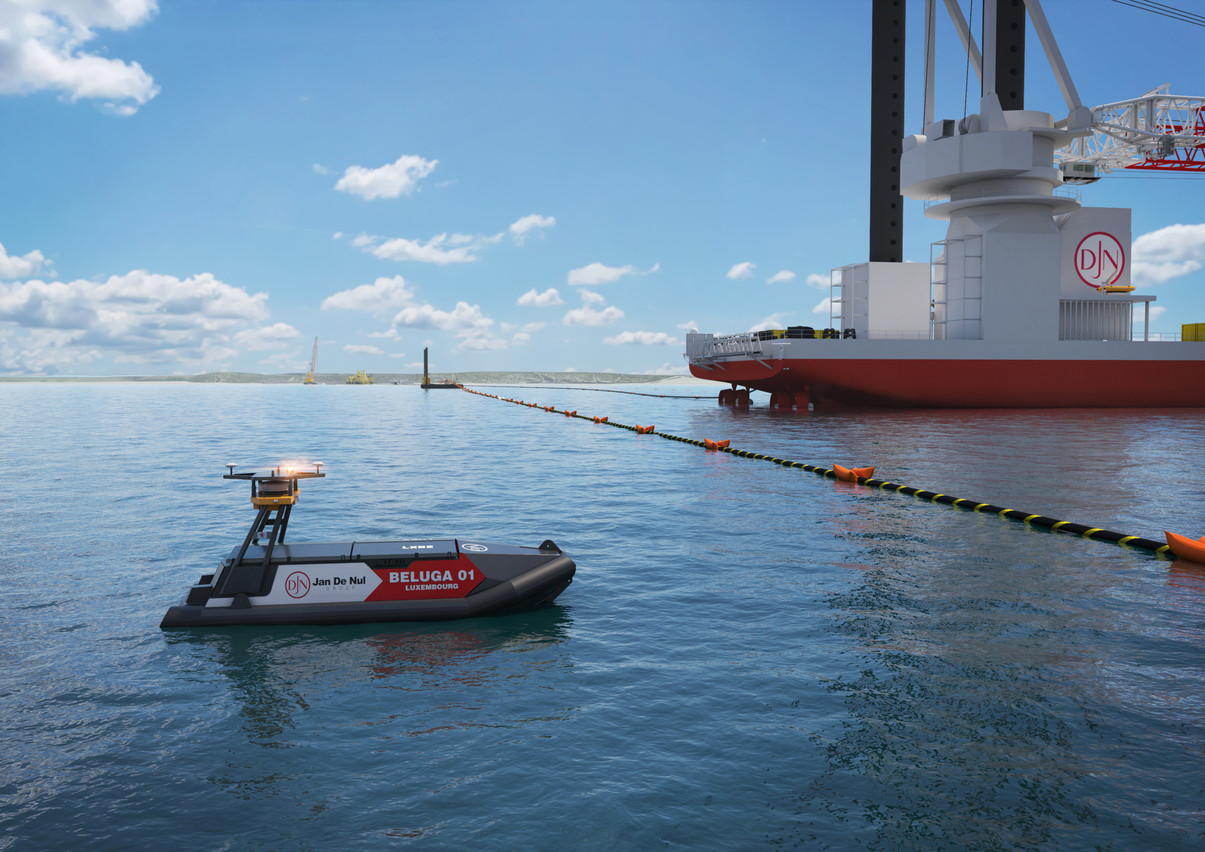Acquired from Maritime Robotics the autonomous hybrid vessel nicknamed ‘The Beluga 01’ will improve safety and reduce carbon emissions for the business, as it relays data to the mainland.
The Beluga 01 can operate in heavy seas (waves up to 4 metres), which generally prevents the collection of usable data. And the ship can also withstand treacherous conditions, with the ability to ‘survive’ waves reaching up to 9 meters.
“It is an easy-to-use, cost-effective and safe platform for data acquisition at sea as an alternative or complement to larger conventional vessels,” the press release reads.
Jan De Nul Group is a Belgian, family-owned company who are specialist in maritime construction with a focus on dredging -- accounting for 85% of their turnover -- it’s financial headquarters are in Luxembourg.
The vessel will fly the Luxembourg flag and be deployed worldwide for hydrographic and environmental surveys of maritime and offshore construction projects.
“Our primary objective has always been to develop our expertise in autonomy for offshore survey operations… the maturing USV market have allowed us to take this step and order a key vessel for our marine and offshore projects,” said Mike Lycke, survey manager offshore projects at Jan De Nul Group. “We have found the perfect partner with Maritime Robotics, a leading provider of innovative autonomous solutions for maritime operations and data acquisition.”
Its green credentials
The Beluga 01 is equipped with a hybrid propulsion system, its primary propulsion source is a diesel engine which is mechanically coupled to its waterjet. The vessel can also function solely on electricity.
The electrical system is able to operate for more than 12 hours, thanks to a recharging module for the batteries.
This kind of system has a lower rate of emissions than the main engine, says Jan De Nul, and the electric propulsion can take over automatically if the main engine fails, the company goes on to say.
The maritime company has said it wants to reduce carbon emissions and that they are committed to emission-free propulsions for its future vessels. Part of its strategy moving forward will attempt to take into account its environmental impact when designing new vessels, in particular with water and air pollution.
